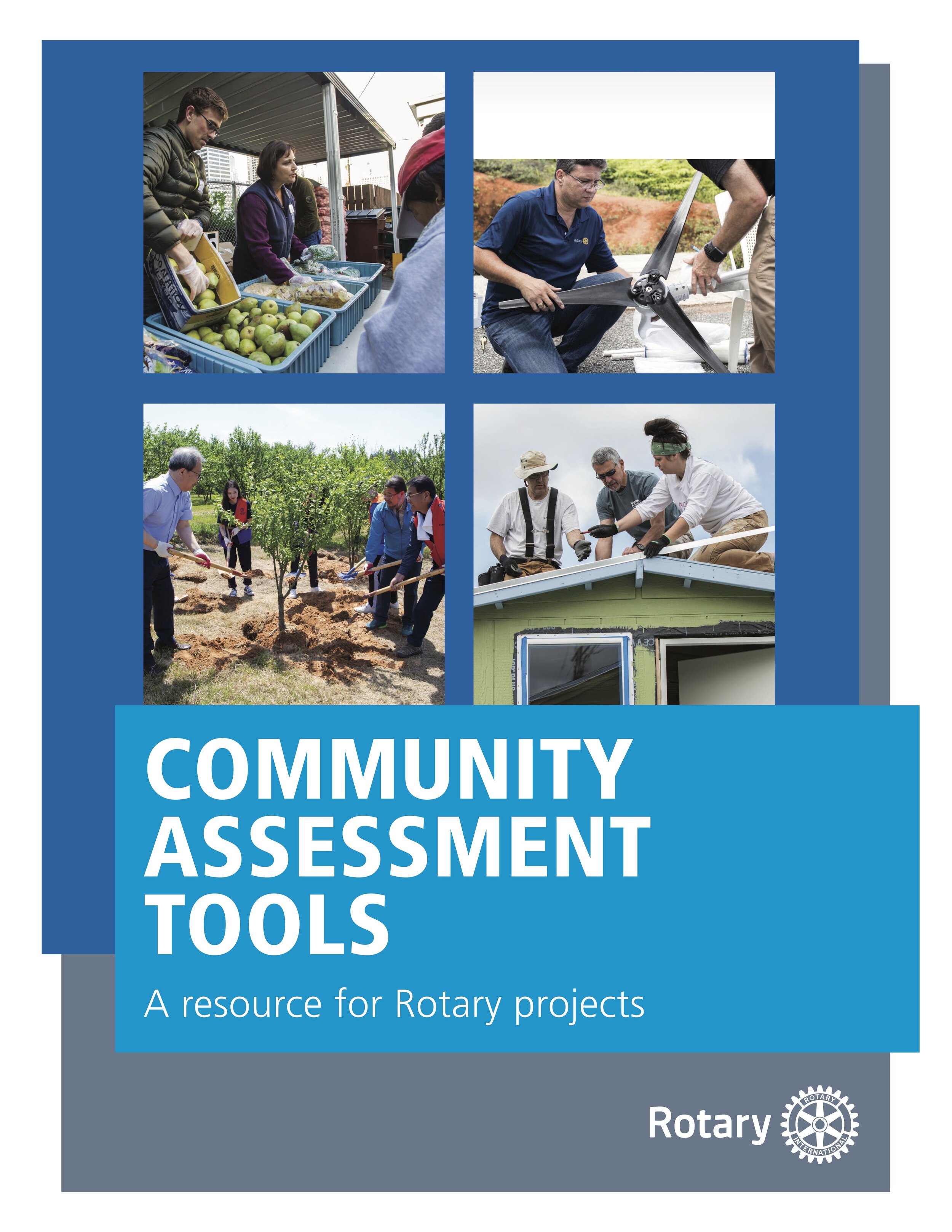Community Assessment Strategy 1, 2, 3
By Geoffrey Elliott and Emily Davidson, Rotary E-Club of WASH
“Assessments are the foundation of every humanitarian project, small or large, because they provide a framework for identifying solutions to a community’s problems. They also build valuable relationships and encourage residents to help make lasting local improvements. Developing trust in communities can take time – months, even years. Conducting an assessment is critical to creating that trust, and to fostering community ownership and sustainability.” From RI Document 605 page 2.
Types of Community Assessments
from RI Document 605
1. Community meetings
2. Asset inventories
3. Surveys
4. Interviews
5. Focus groups
6. Community mapping
Rotary International (RI) Document 605 presents an array of tools to guide community assessments that strengthen Rotary projects funded under Global Grants including Water, Sanitation, and Hygiene (WASH). The document outlines six assessment types, (SEE BOX) giving general tips and plenty of checklists for Rotary Clubs and project partners wishing to conduct assessments. Any and/or all of these tools can be part of a strategic effort.
Still, Global Grant reviewers find that many community assessments lack consistency and often miss specific content critical to project development and RI recognition. Worse, many Global Grants applications must go “back to the drawing board” for important information only available through a more thorough community effort.
Indeed, Rotary community assessments should capture a clear view of community strengths as well as opportunities to improve capacities for long term, community-based WASH programs. Such assessments need to be:
1. Rooted in RI guidance, which incorporates UN Sustainable Development Goals (SDG 6) and UNICEF programs
2. Flexible enough to be applicable to a wide variety of community settings
3. Broad enough to incorporate a watershed perspective for life-cycle WASH programs including source water protection
4. Robust for field use with or without internet coverage
5. Social-media friendly, enabling documenting observations from citizen scientists of all ages
The Rotary E-Club of WASH is guiding development of a series of Rotary Community Assessment Apps that will guide traveling Rotarians participating in WASH Global Grants to create consistent, strong, and relevant assessments that encapsulate the important assessment characteristics addressed above.
Assessments will be performed in three levels, geared for running on cell phone or tablet, and will build off the mWater platform (see www.mWater.org). The three levels include Reconnaissance, Routine, and Intensive and are described in the table below.
NOTE: Levels 1, 2, and 3 follow industry standard watershed assessment strategies, see for instance FACStream 1.0 Functional Assessment of Colorado Streams by Johnson et al, Ecometrics, Fort Collins CO, 2016
Our overall goal is to help Rotarians and their project partners develop, manage, refine and better community assessment application(s) that will:
1) Result in stronger assessments (and therefore grants and eventual projects)
2) Contribute to a collective database that is accessible and available for assessments and research both currently and in the future
3) Create an easily-manageable and accessible space for real-time discussion, visual-sharing capabilities, and, ultimately, connection between Rotarians regardless of geographic location or affiliation within Rotary
Join us at the Virtual D5450 WASH Symposium
for more information about our Community Assessment with Citizen Science App!



